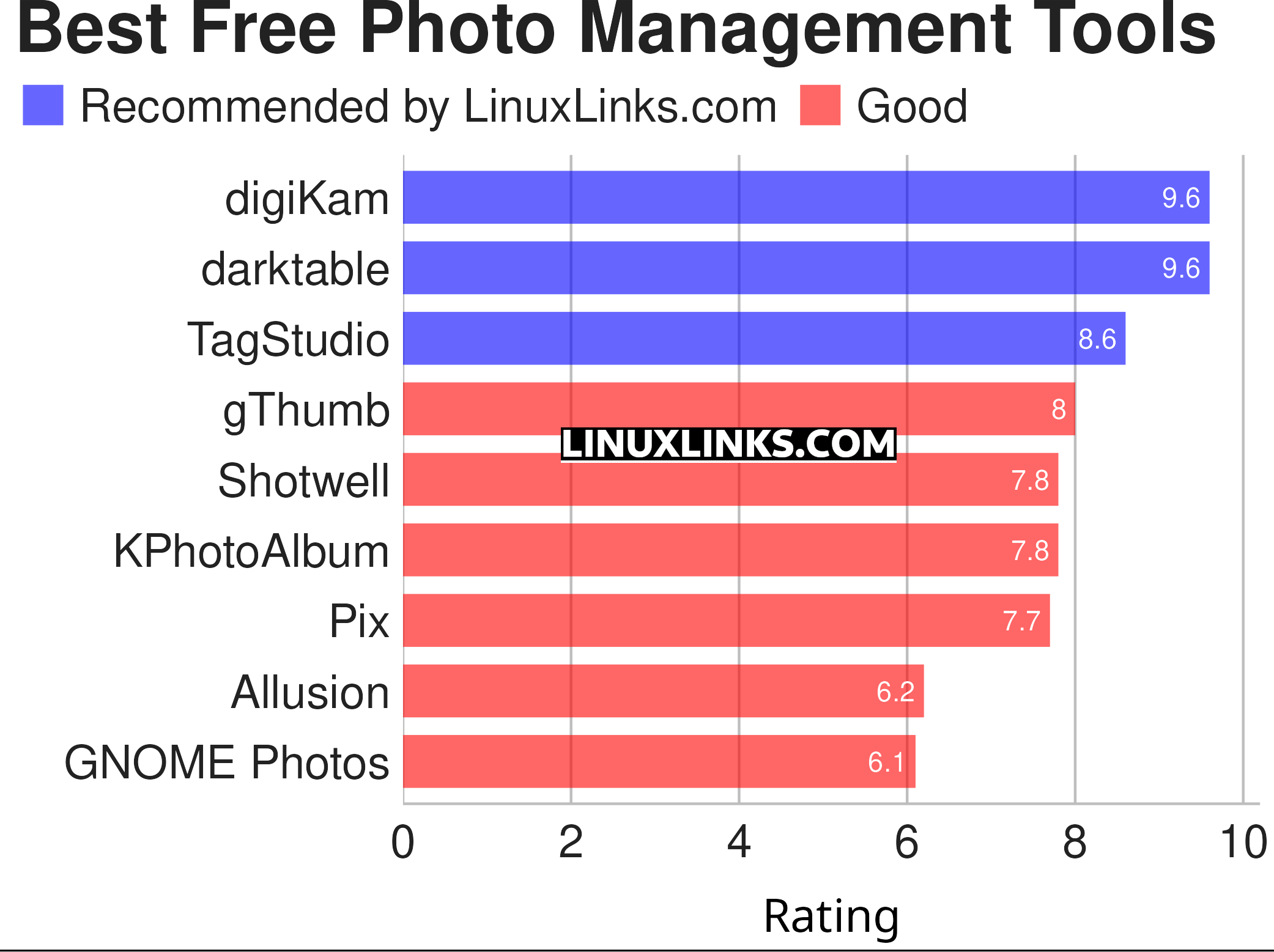Photo management software is a type of computer application that helps users to organize their digital image collection.
One of the biggest culprits of a cluttered hard disk are images taken with a digital camera. This device enable users to take literally hundreds or even thousands of photos storing them on a single small memory device. The photos are then transferred to a computer hard disk for sharing with family and friends, editing, and to print to a photo printer or one of the many online digital photo printing services.
Anyone with a large photo collection will know that cataloging and finding a specific picture can be very time consuming. The purpose of this article is to identify Linux software that helps manage your collection by using a number of different techniques including tagging and albums. Good software makes the task of deciding which photos to keep and which to delete less time consuming.
To provide an insight into the quality of software that is available, we have compiled a list of 9 of the most useful free photo management tools. Hopefully, there will be something of interest here for anyone who wants to organize their photos.

Click the links in the table below to learn more about each application.
| Photo Management Software | |
|---|---|
| digiKam | Image organiser and editor using KDE |
| TagStudio | Tag-based photo and file organization program |
| darktable | Photography workflow application and raw developer |
| gThumb | Image viewer and organizer for the GNOME desktop environment |
| Shotwell | Personal photo management |
| KPhotoAlbum | Tool for indexing, searching and viewing images by keywords for KDE |
| Pix | Image viewer and browser utility which is based on gThumb |
| Allusion | Organize your visual library |
| GNOME Photos | Access, organize and share your photos on GNOME |
Web-based photo gallery software is covered in a separate roundup. And many image viewers offer some sort of image organizer functionality.
This article has been revamped in line with our recent announcement.
 Read our complete collection of recommended free and open source software. Our curated compilation covers all categories of software. Read our complete collection of recommended free and open source software. Our curated compilation covers all categories of software. Spotted a useful open source Linux program not covered on our site? Please let us know by completing this form. The software collection forms part of our series of informative articles for Linux enthusiasts. There are hundreds of in-depth reviews, open source alternatives to proprietary software from large corporations like Google, Microsoft, Apple, Adobe, IBM, Cisco, Oracle, and Autodesk. There are also fun things to try, hardware, free programming books and tutorials, and much more. |

For the darktable amateurs, one might give a look at a fork of darktable, Ansel. Fork made by Aurélien Pierre “A darktable fork minus the bloat plus some design vision“